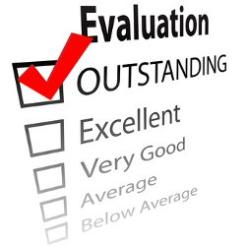Board appraisals may seem daunting, but they're the first step to achieving big ambitions, says Martin Farrell.
“Can you tell me how do I get to Dublin from here?” “ Sure I can, but I wouldn’t be starting from here if I were you.” Being proudly half-Irish on my dad’s side I can just hear these innocent words with a lovely Irish lilt.
The words contain an important truth. As we know, we are where we are even though some of us dream of being somewhere else.
Boards beware. Yes part of a board’s role is to dream the big dream to envision a better world, breathe life into their mission and to set strategy. But setting out from where you are not, is a poor place to start from.
So how do those of us on boards get to the truth of where we are starting from? Governance reviews and board appraisals of course.
I take ‘governance review’ to mean a once-every-five- years-or-so review of the formal documents and structures which govern a charity. You know the kind of thing: do our governing instruments still allow us to do what we are and soon will be doing, do we have the right number and type of sub-committees?
This is all good and necessary stuff and is amply described in the March 2010 issue of Governance, but my interest in general and my interest here is the more fleshy material of how boards work – the human side of things. And it is the nature for the human side of things sometimes to get somewhat messy and be in a state of flux.
The point of a board appraisal, it seems to me, is to unearth and state the truth of what is, so that we can have an honest conversation about what could be done to get to the point we want to get to.
We get to the truth by looking at the board from several directions and many ways. Questions may be asked of the board, of the executive team and maybe of staff and clients (depending on the resources you want to invest), about what they see. Questions may be asked by surveys, by one-to-one interviews, in person or on the phone, or by regular ‘how are we doing’ debriefs after meetings. Questions may be asked by an internal group, sub-group or by an external consultant.
Whatever and however: this is about generating honest conversations about how things are.
I am reminded of an organisation I recently worked with in which one of the survey findings (a consensus by trustees and executive) was that the board was not operating at a sufficiently strategic level. Some nervousness preceded the presentation of this to a board meeting which was to be the first for several new members. What on earth will they think of us?
No need to have worried. A full and honest discussion ensued and appropriate action was agreed. They saw, as we all should, being on the board as a journey not a destination and the appraisal as a way of... starting from here.








